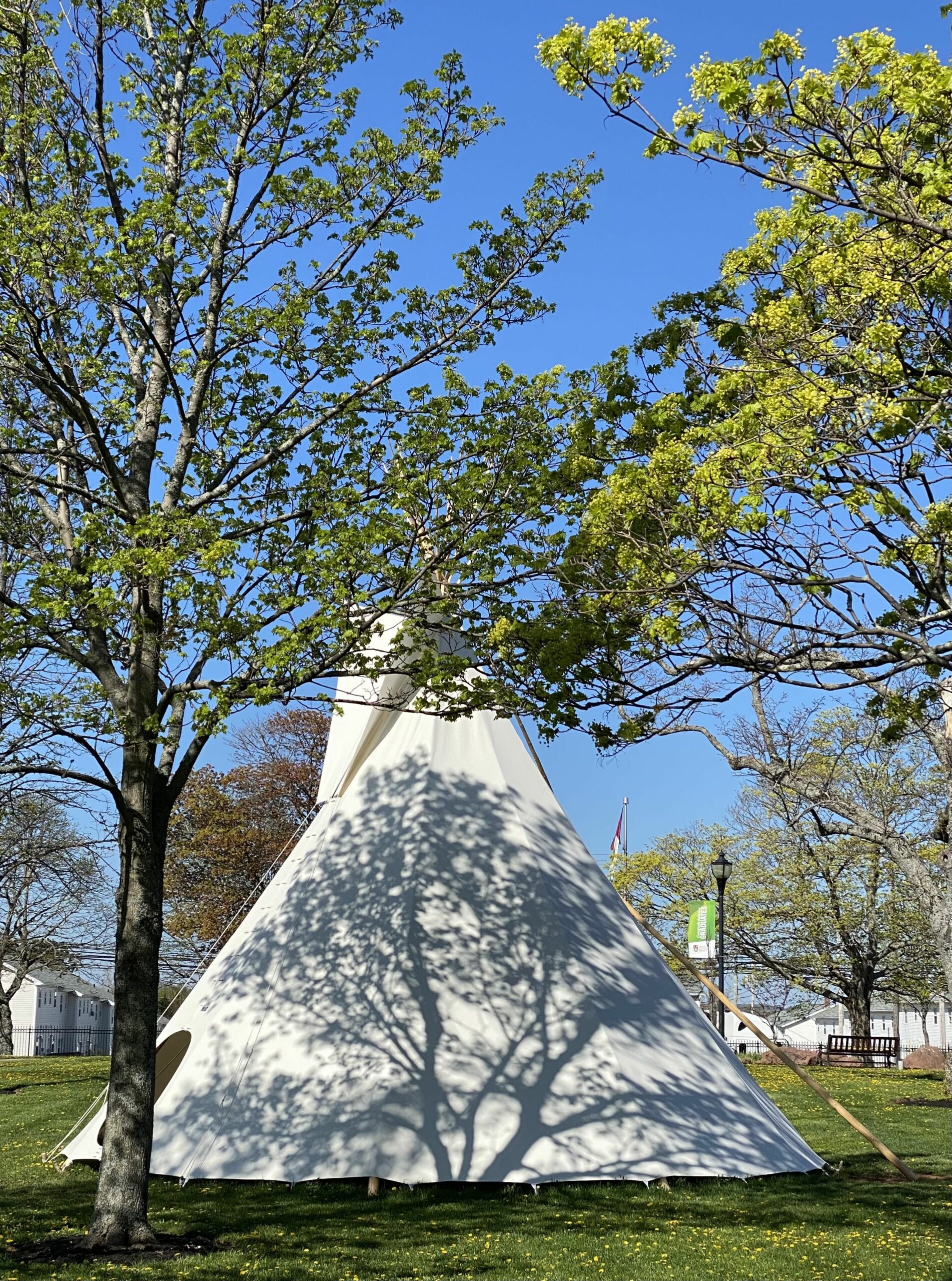Section 1 : Eastern Door ~ The Rising Sun
Introduction
Indigenous Teachings of Turtle Island: A Journey of Reconciliation began on September 28th, 2021. I remember the day well; I wore a traditional black and purple ribbon shirt, which I adorn on special occasions to honour the past, present, and future. This was a special event at the University of Prince Edward Island, in preparation for the first-ever National Day for Truth and Reconciliation — now a national public holiday, held each year on September 30th.
 What I recall is ‘truth’ being spoken, witnessed, and coming to life. While the University had made good progress in addressing the Truth and Reconciliation Commission of Canada’s Final Report and Calls to Action (2015), I never felt the spiritual presence or calls to action as profoundly as I did that day, September 28th. Chief and President of the Native Council of Prince Edward Island, Lisa Cooper (UPEI MEd Graduate) stated that true reconciliation will only come about if every student graduating from UPEI — those who will lead the next generation — understood the history of Indigenous peoples in Canada, and past Indigenous and non-Indigenous relations. Understanding the past will prepare them for the future reconciliation work and healing of Nations that lay ahead.
What I recall is ‘truth’ being spoken, witnessed, and coming to life. While the University had made good progress in addressing the Truth and Reconciliation Commission of Canada’s Final Report and Calls to Action (2015), I never felt the spiritual presence or calls to action as profoundly as I did that day, September 28th. Chief and President of the Native Council of Prince Edward Island, Lisa Cooper (UPEI MEd Graduate) stated that true reconciliation will only come about if every student graduating from UPEI — those who will lead the next generation — understood the history of Indigenous peoples in Canada, and past Indigenous and non-Indigenous relations. Understanding the past will prepare them for the future reconciliation work and healing of Nations that lay ahead.
As if predestined, spiritual and Creator-given, in rapid succession, we witnessed the Senior Management, Senate, and Board of Governor’s approval of a new Faculty of Indigenous Knowledge, Education, Research, and Applied Studies in November 2021, and then a mandatory Indigenous course — IKE-1040 — for all graduating students. And following was a suite of Indigenous Knowledge Education courses, which could lead students to a minor in Indigenous Studies, commencing in the fall of 2022.
The mandatory course, titled Indigenous Teachings of Turtle Island, was launched during the first summer session in May 2022. Its development began with two cohorts, each contributing to this historic moment in UPEI’s and Canada’s post-secondary history. With the assistance of Morgan E. Varis, Courtney Matthews, and Kim Mears, an Open Education Resource (OER) text was created — as there is no single text, at least of which I am aware, that can meet the needs of the diverse student population whom it must serve, nor would it capture the very dynamic and engaging delivery methodology that will bring education and responsible citizenship to the forefront. I hope this introductory OER creation will serve its purpose in the present-day and evolve over time.
Msit No’kmaq ~ Wahkohtowin ~ All my Relations
David D. Varis
Okiskinohamâkew / Kiskinwahamawâkan ~ Teacher / Learner
Assistant Professor
Faculty of Indigenous Knowledge, Education, Research, and Applied Studies/
Department of Sociology and Anthropology

